AP World History Modern Unit 4 1450-1750 (Maritime Empires)
1/44
There's no tags or description
Looks like no tags are added yet.
Name | Mastery | Learn | Test | Matching | Spaced |
|---|
No study sessions yet.
45 Terms
Charters
Govt issued documents granting the right to organize settlements in an area (like to a joint stock company)
Mercantilism
An economic policy under which nations sought to increase their wealth and power by strictly regulating the economy to obtain large amounts of gold and silver by selling more goods than they bought and utilizing colonies
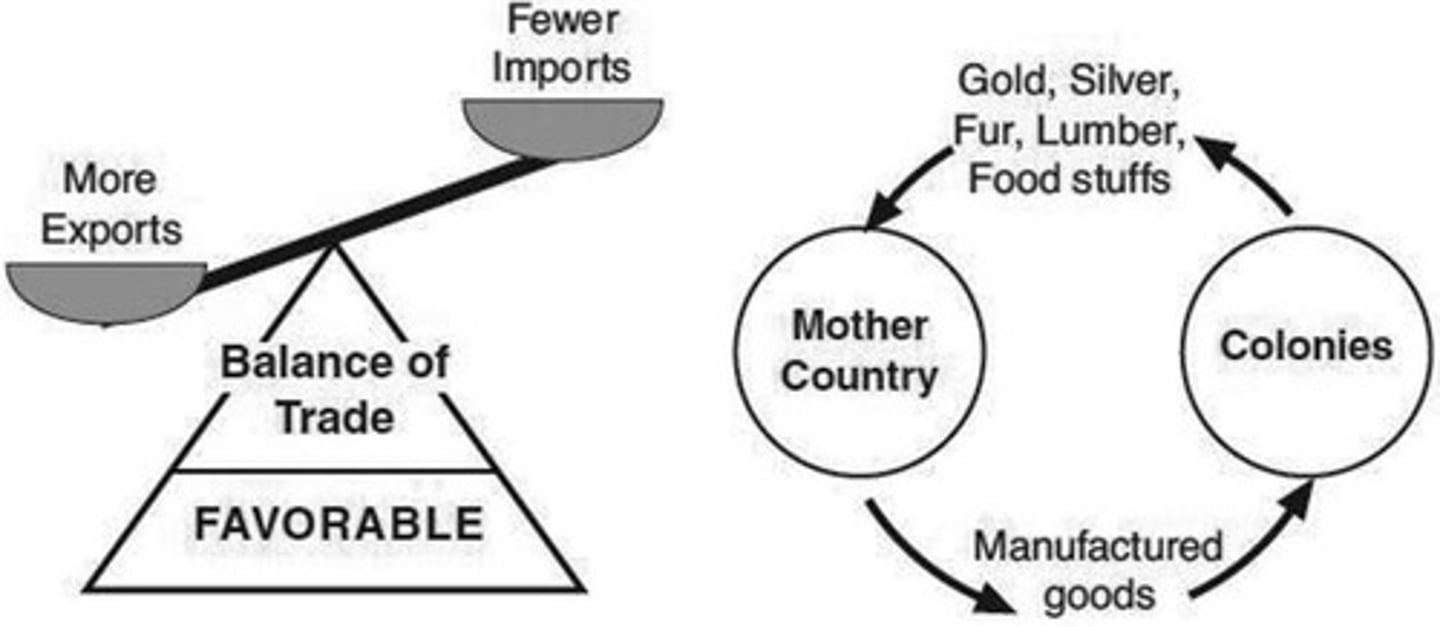
Prince Henry the Navigator
(1394-1460) Prince of Portugal who established an observatory and school of navigation and directed voyages that spurred the growth of Portugal's colonial empire.
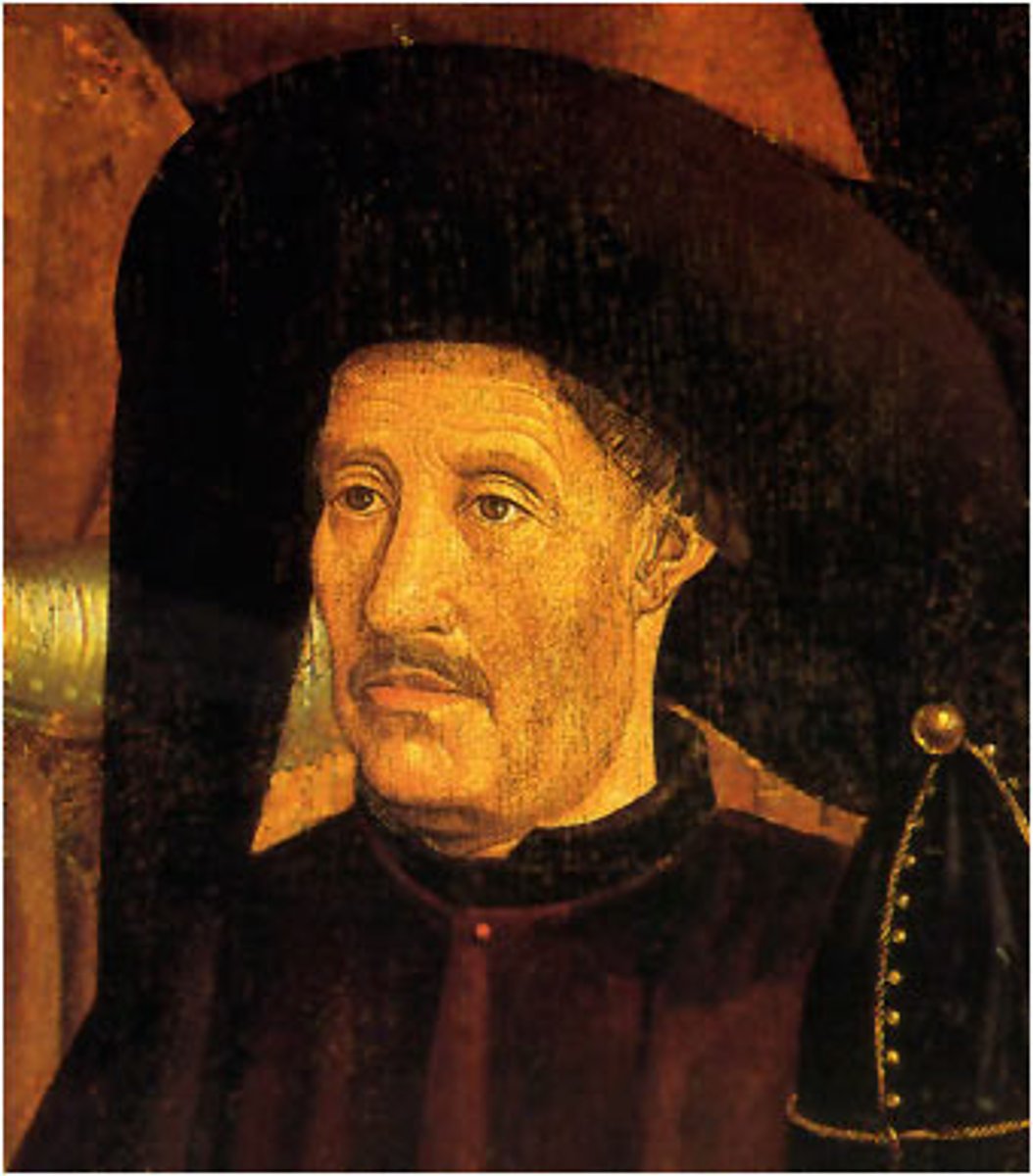
Ming Dynasty (1368-1644)
They improved the Grand Canal, made great porcelain, and under Yongle encouraged exploration. They also built the Forbidden City in the capital of Beijing. Participated in the Global Silver Trade, starting in the mid-1500s, as an eager buyer of silver. Overthrown by the Manchu.
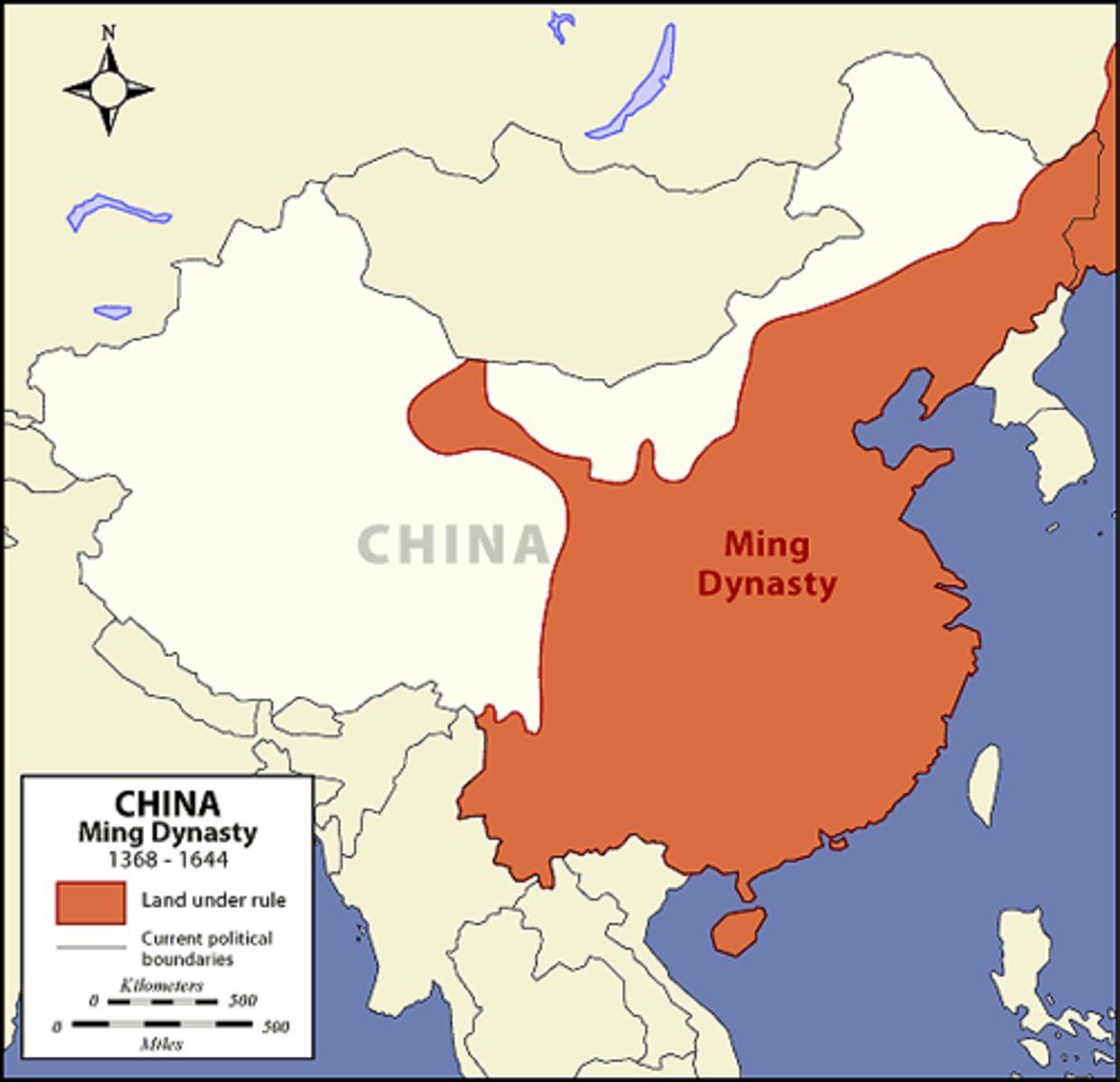
Portuguese Empire
took an early lead in European exploration (sponsored by Prince Henry); went East and established trading posts in West Africa, East Africa (Swahili City States) and India for spice trade
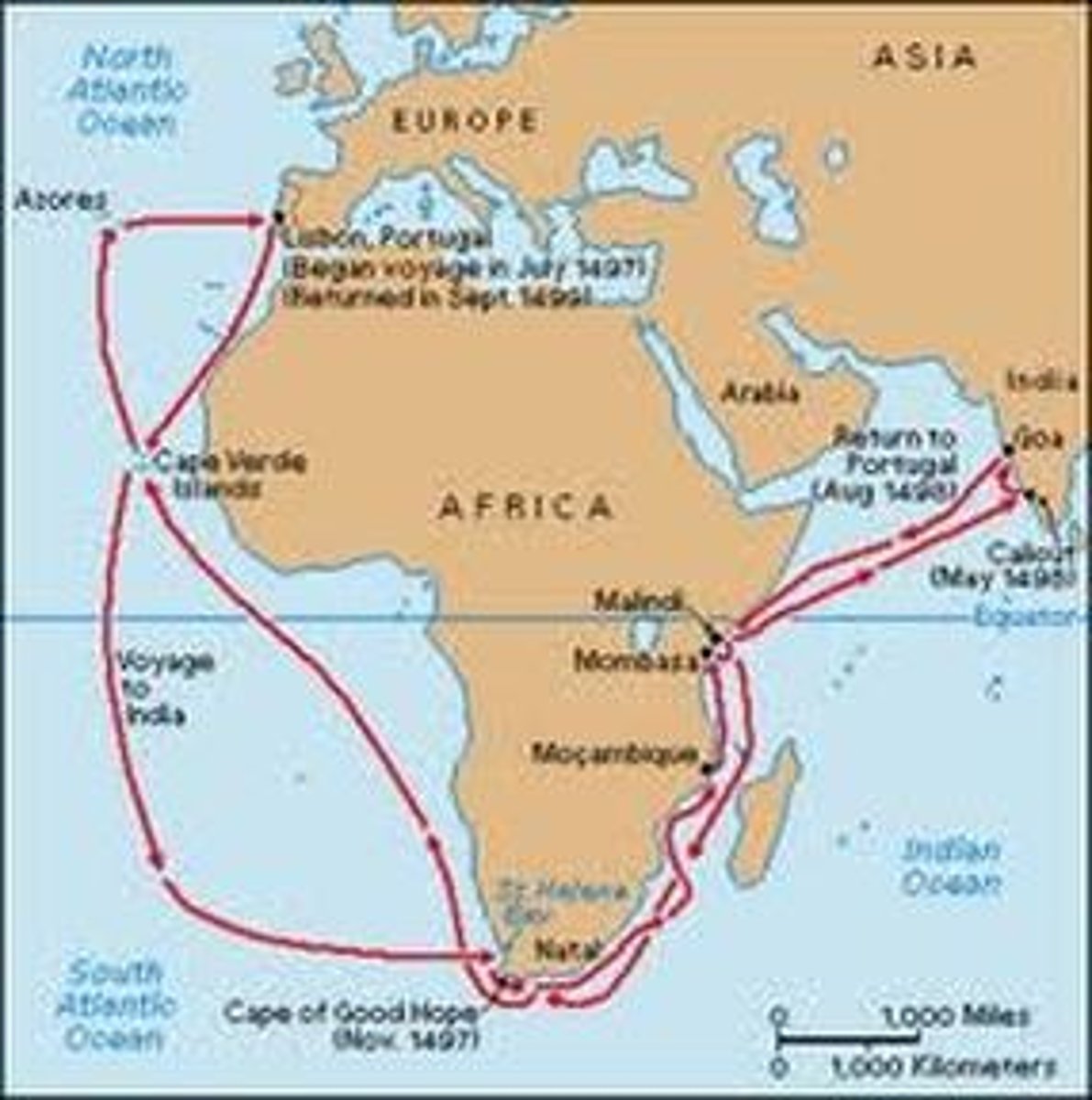
maritime
on or near the sea
Global Silver Trade
Trade of this product occurred between the Americas and Europe and onward to China from the 16th to 18th centuries. It had a profound effect on the world economy and could also be considered the beginning of the global economy.
Spanish Empire
At its strongest, it was one of the biggest empires in world history according to how much land they had, and one of the 1st global empires. Christopher Columbus led the first exploration trip which led them to colonizing in the Americas.
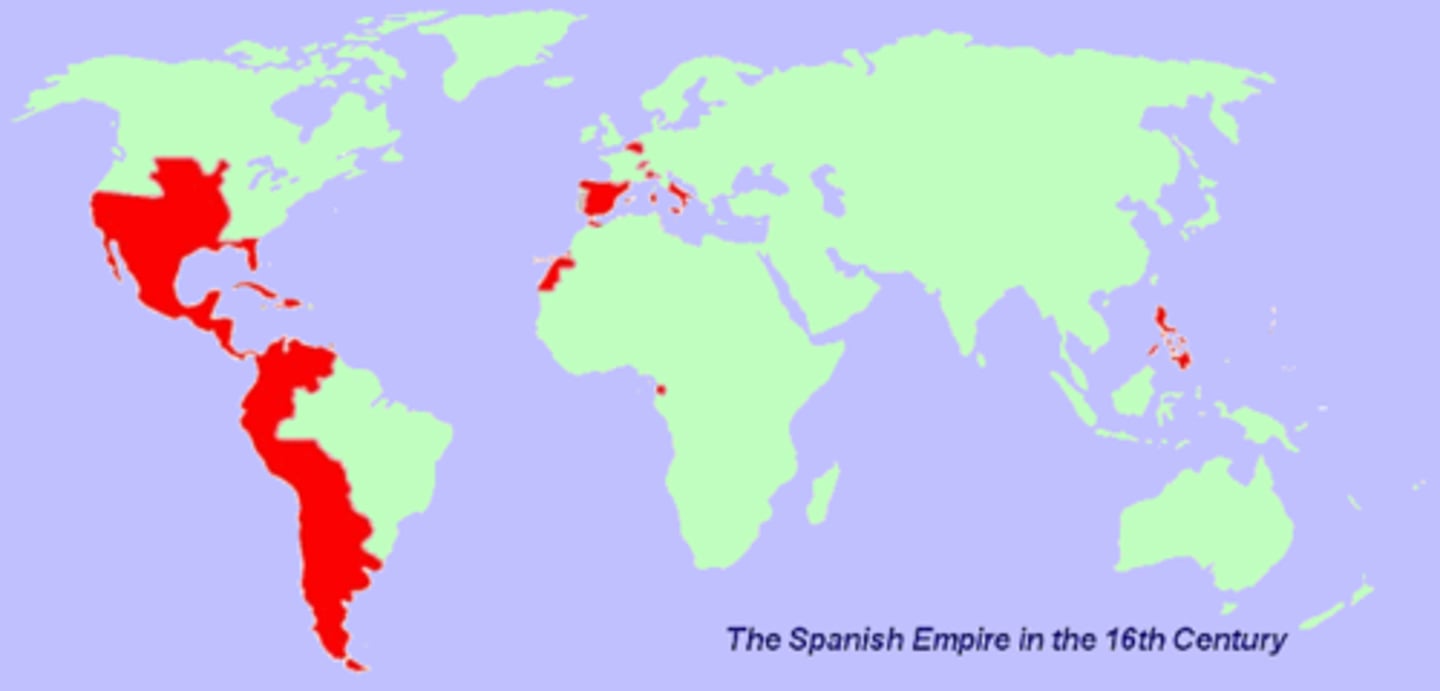
plantation agriculture
Production system based on a large estate organized to produce a cash crop.
cash crop
a crop produced for its commercial value rather than for use by the grower.
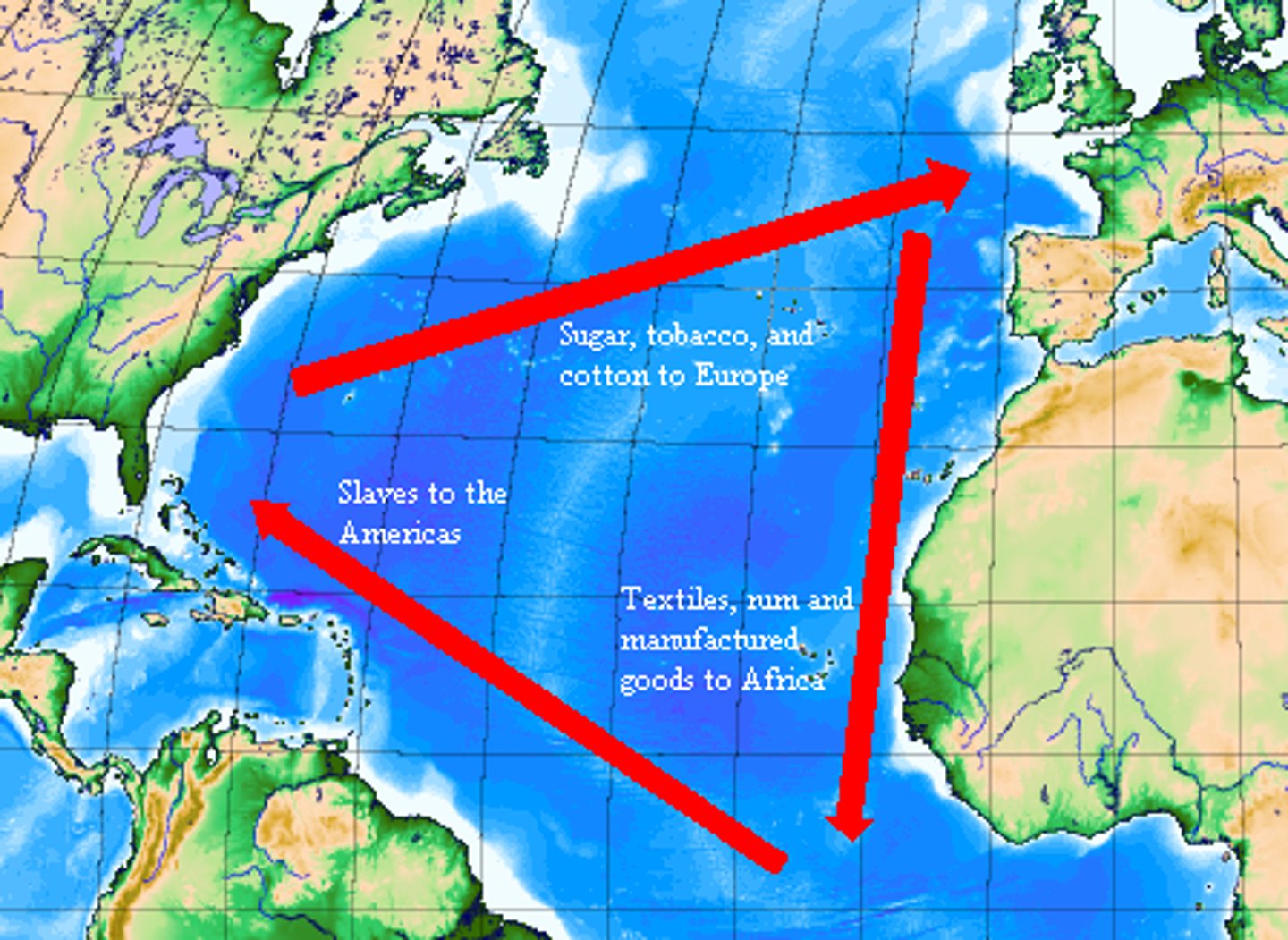
Trans-Atlantic Slave Trade
The forced migration of between 12 - 15 million people from Africa to the Western Hemisphere from the middle of the 15th century to the end of the 19th century.
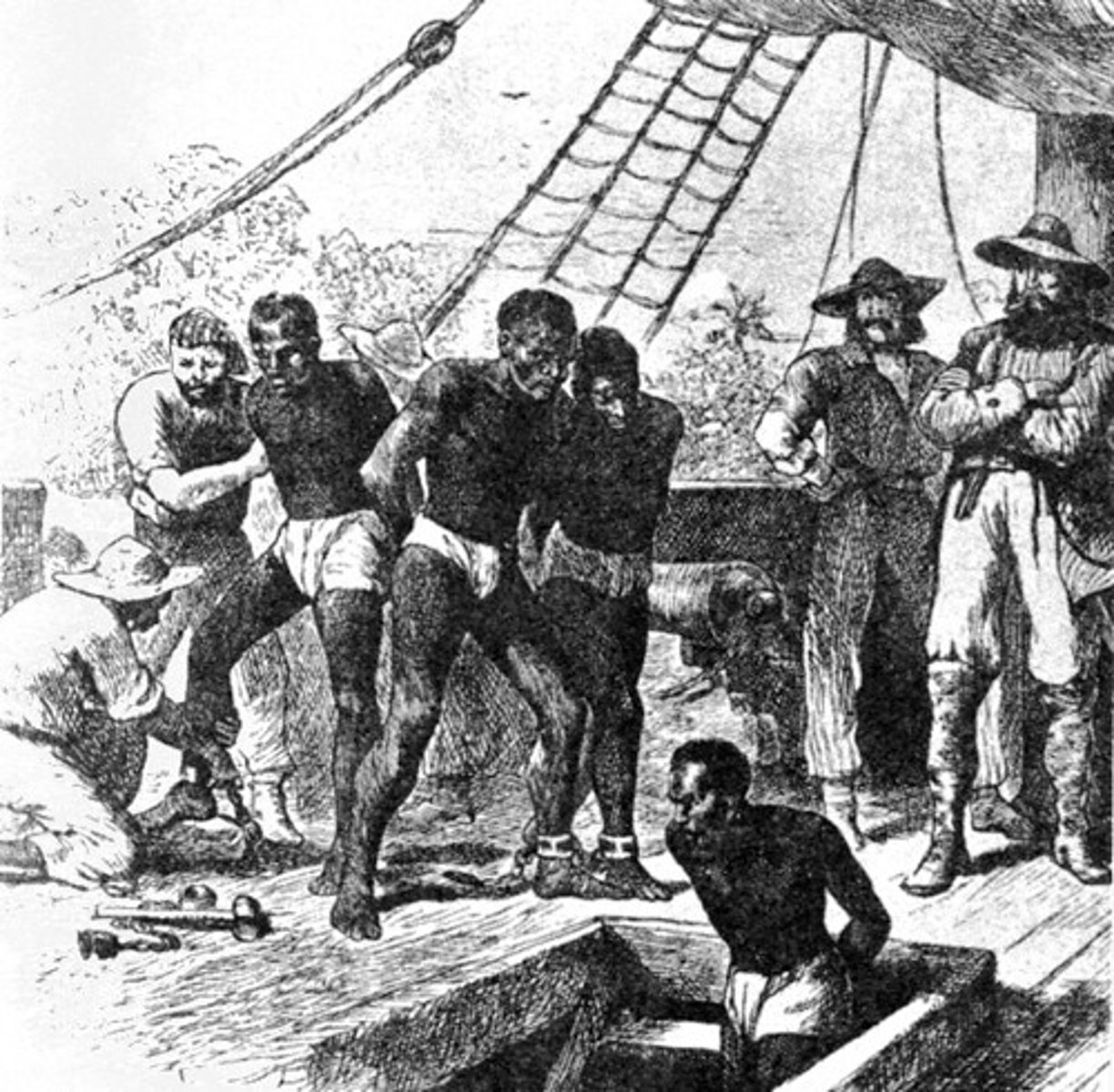
indigenous
native to a certain area
Encomienda System
It gave settlers authority over local Native Americans and right to demand tribute in the form of crops or labor. In exchange, these settlers were supposed to protect the Native American people (but generally exploited them) and convert them to Christianity. It was a form of coercive labor.
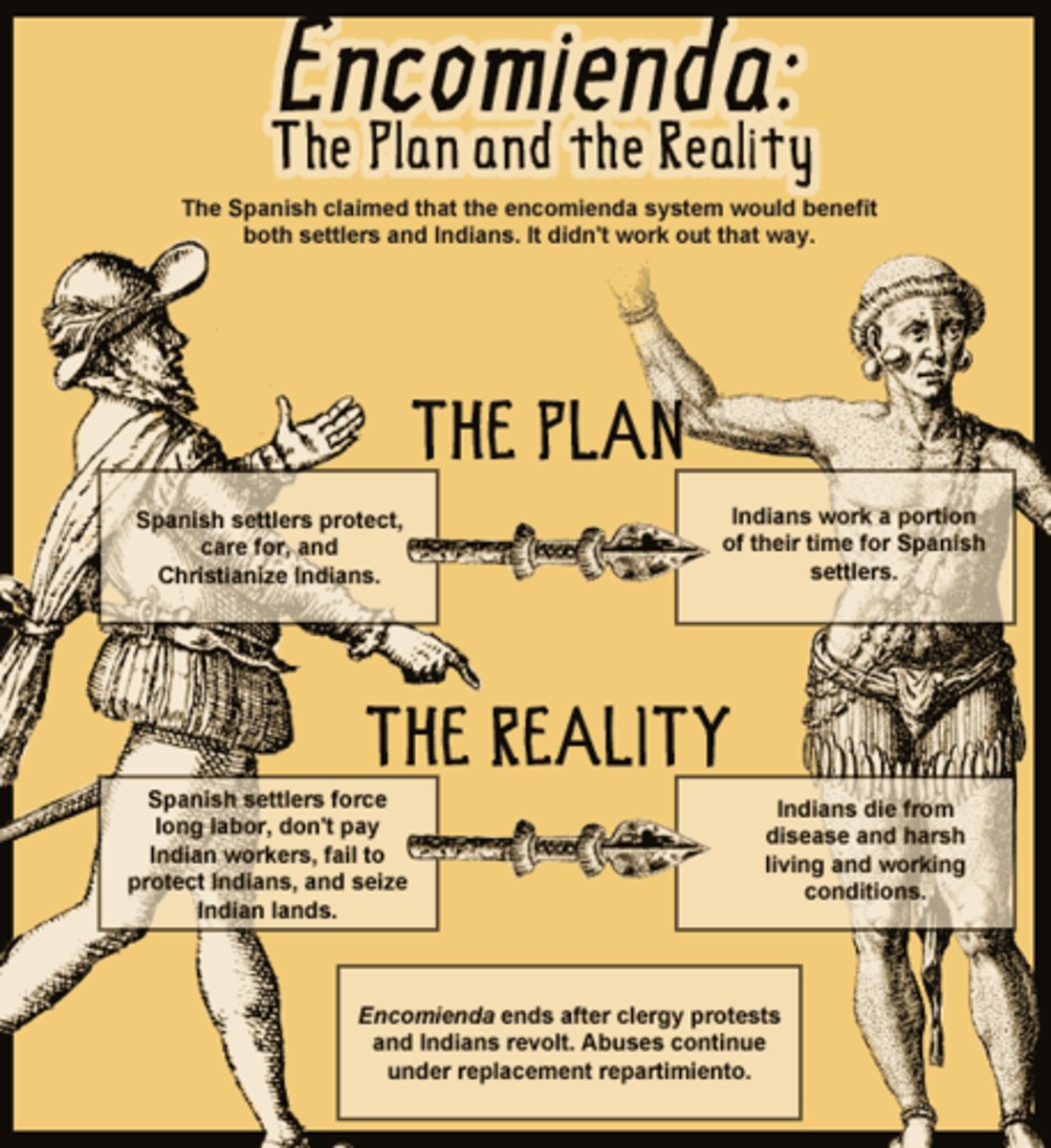
Tokugawa Shogunate
was a semi-feudal government of Japan in which one of the shoguns unified the country under his family's rule. They moved the capital to Edo, which now is called Tokyo. They isolated Japan from foreign influences, by closing themselves off to European trade.
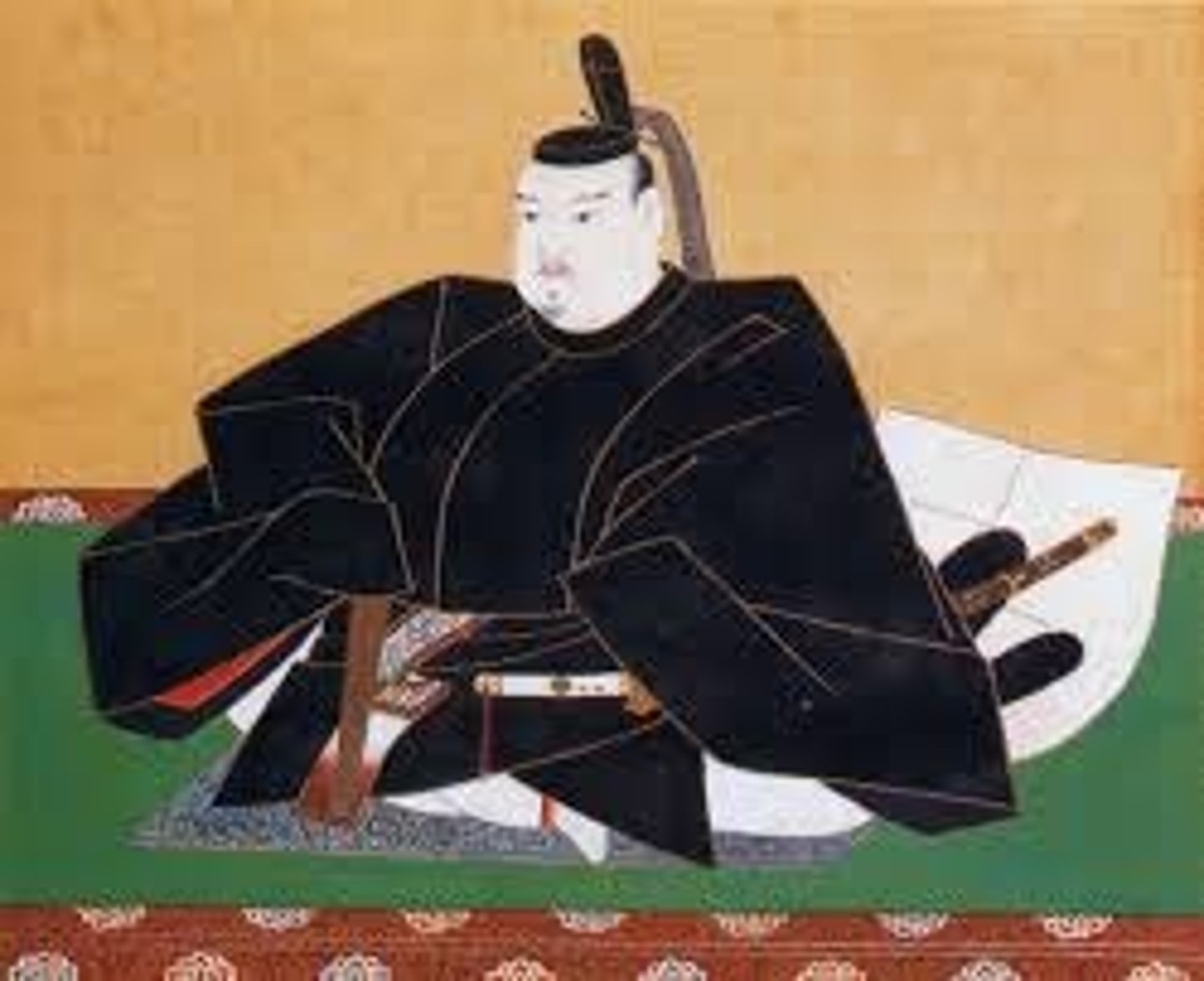
Closed Country Edict
In response to growing European influence, especially Christianity, this document restricted trade to only a few nations in Japan
syncretic religion
Combines two religious traditions into something distinctly new, while containing traits of both (ex: voodoo, santeria)
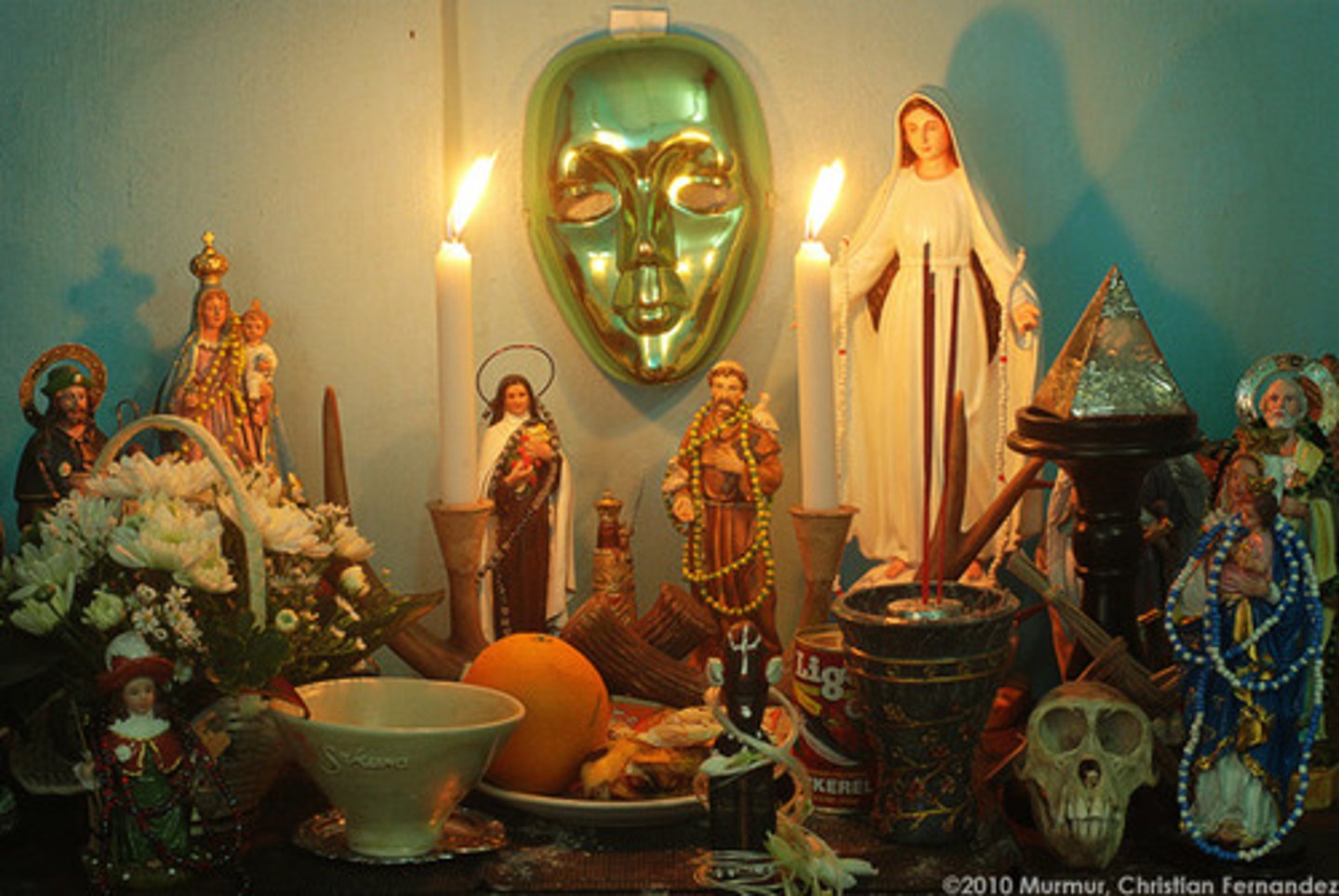
Dutch East India Company
Government-chartered joint-stock company that controlled the spice trade in the East Indies.
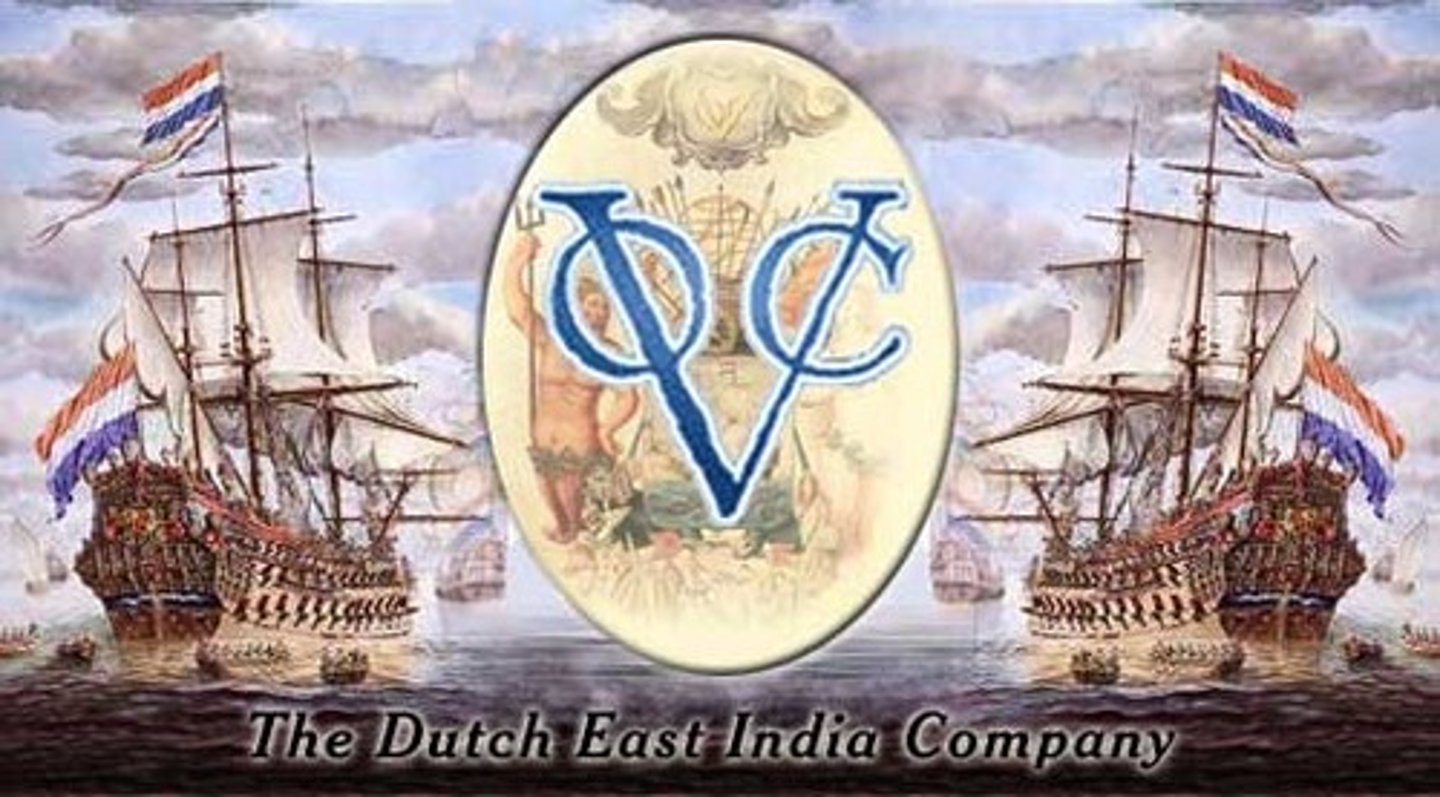
British East India Company
set up trading posts in India in the 1600s, beginning the British economic interest there
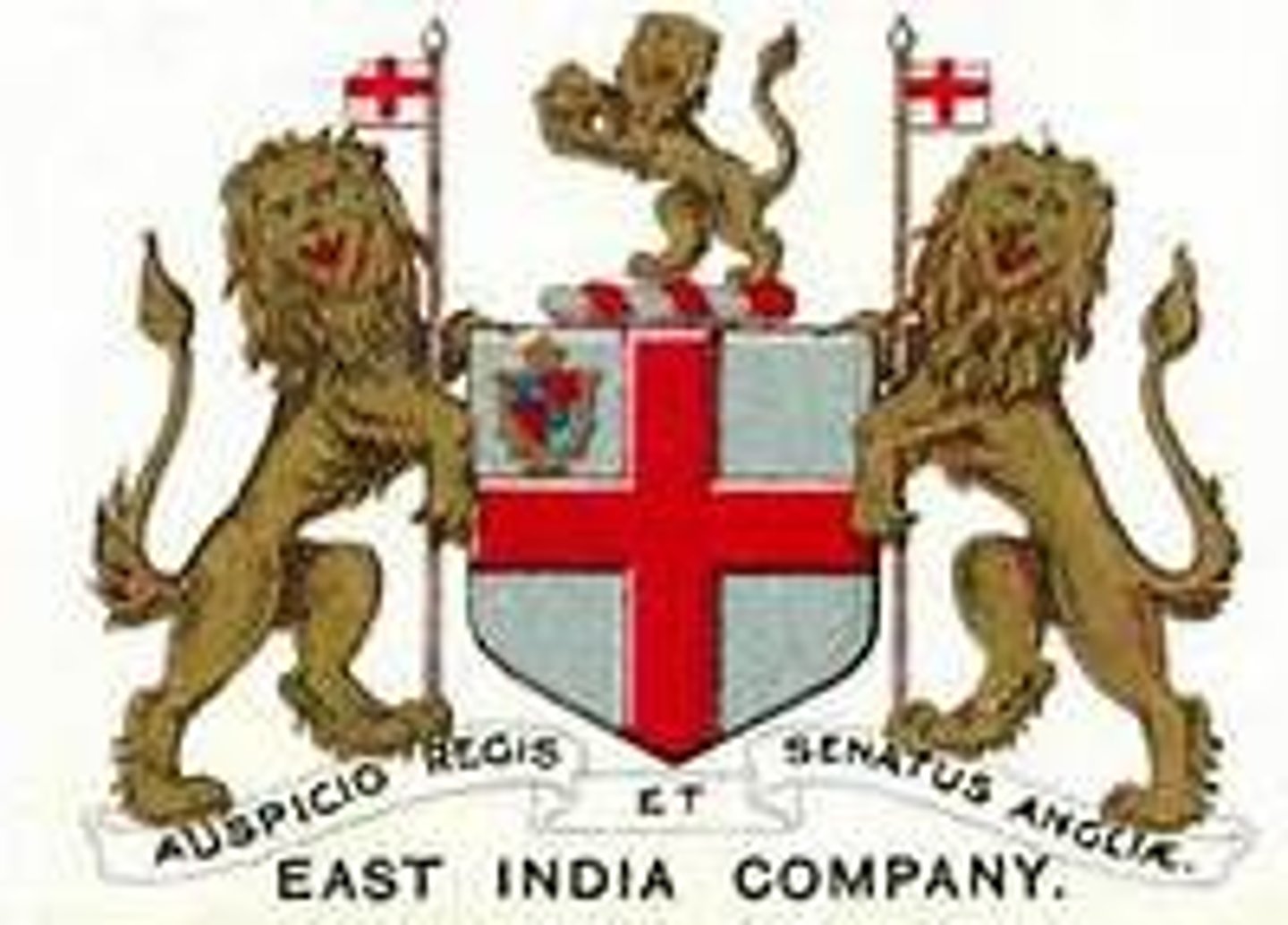
joint-stock company
A business, often backed by a government charter, that sold shares to individuals to raise money for its trading enterprises and to spread the risks (and profits) among many investors.
Columbian Exchange
The exchange of plants, animals, diseases, and technologies between the Americas and the rest of the world following Columbus's voyages.
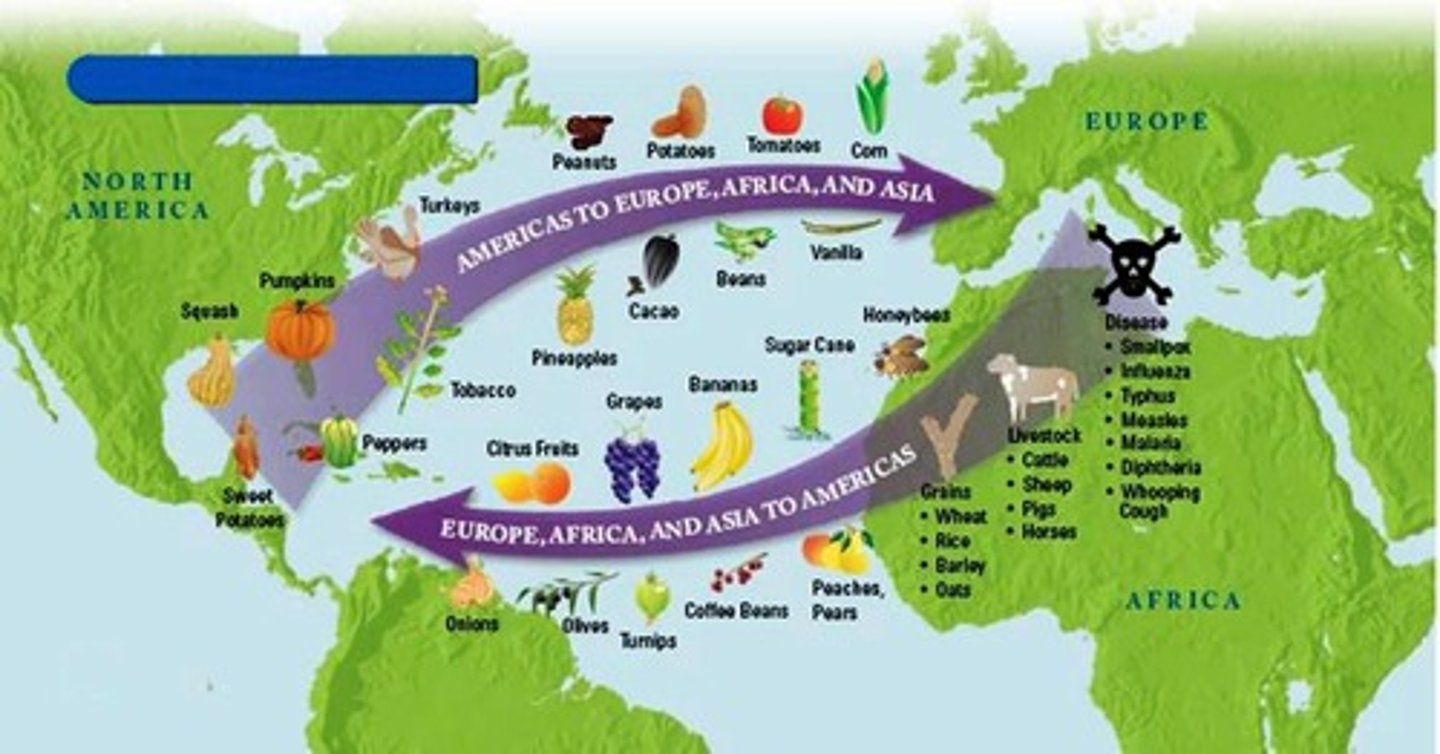
Smallpox
A highly contagious viral disease characterized by fever, weakness, and skin eruption with pustules that form scabs; responsible for killing Native Americans.
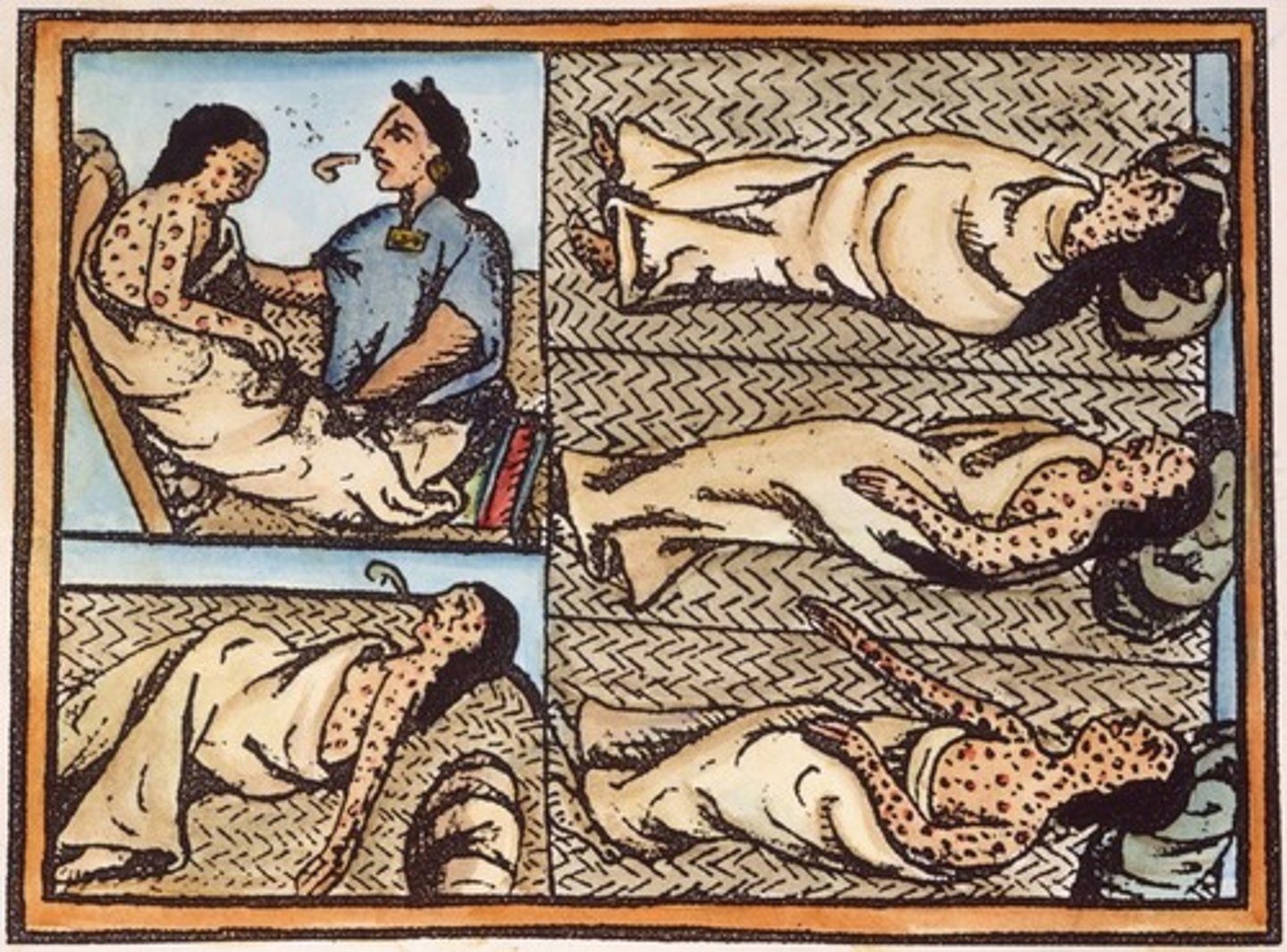
coercive labor
Any labor system that involves force (slavery, serfdom, and encomienda)
Aztec Empire
Central American empire constructed by the Mexica and expanded greatly during the fifteenth century during the reigns of Itzcoatl and Motecuzoma I.
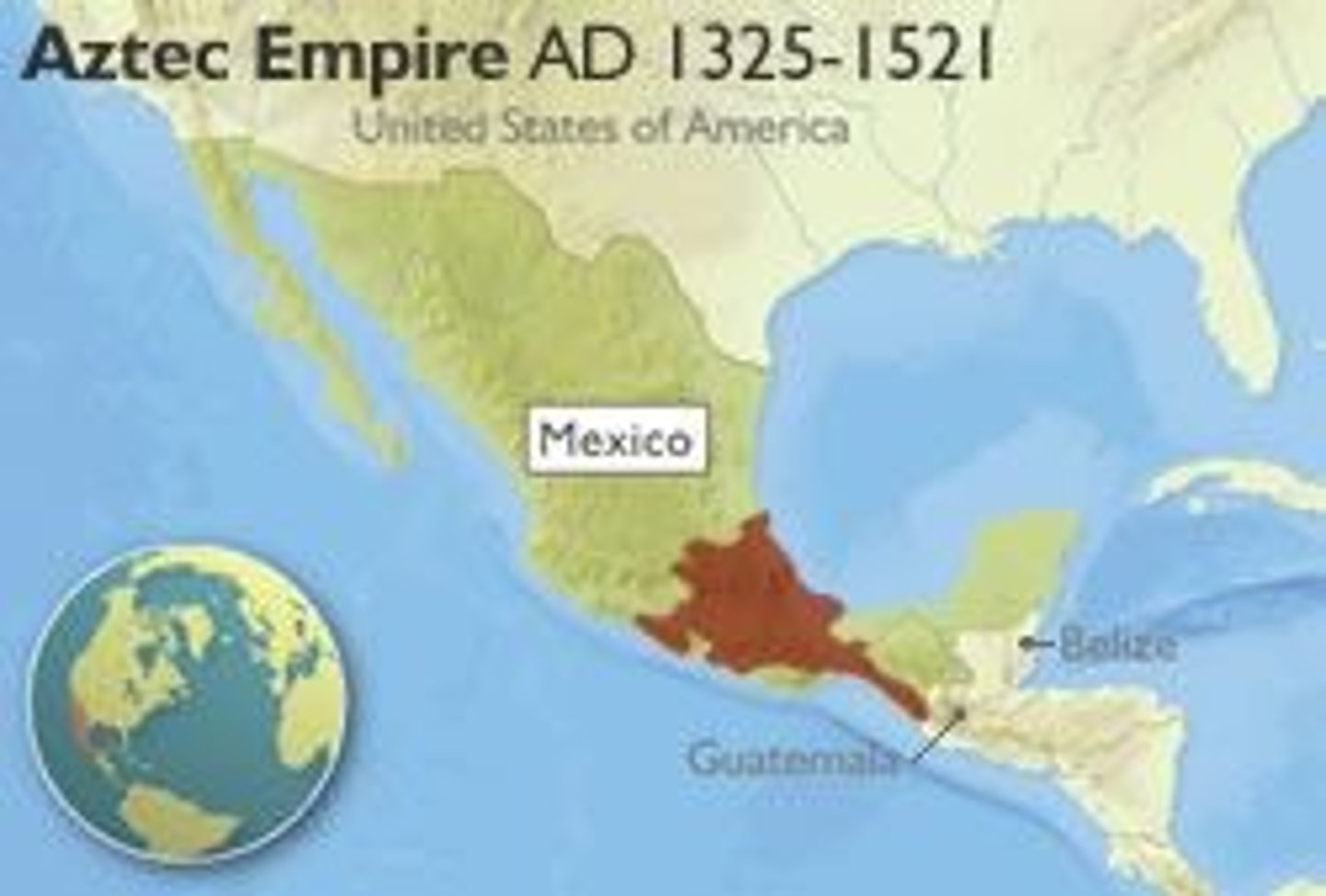
Inca Empire
Empire in Peru. conquered by Pizarro, who began an empire for the Spanish in 1535
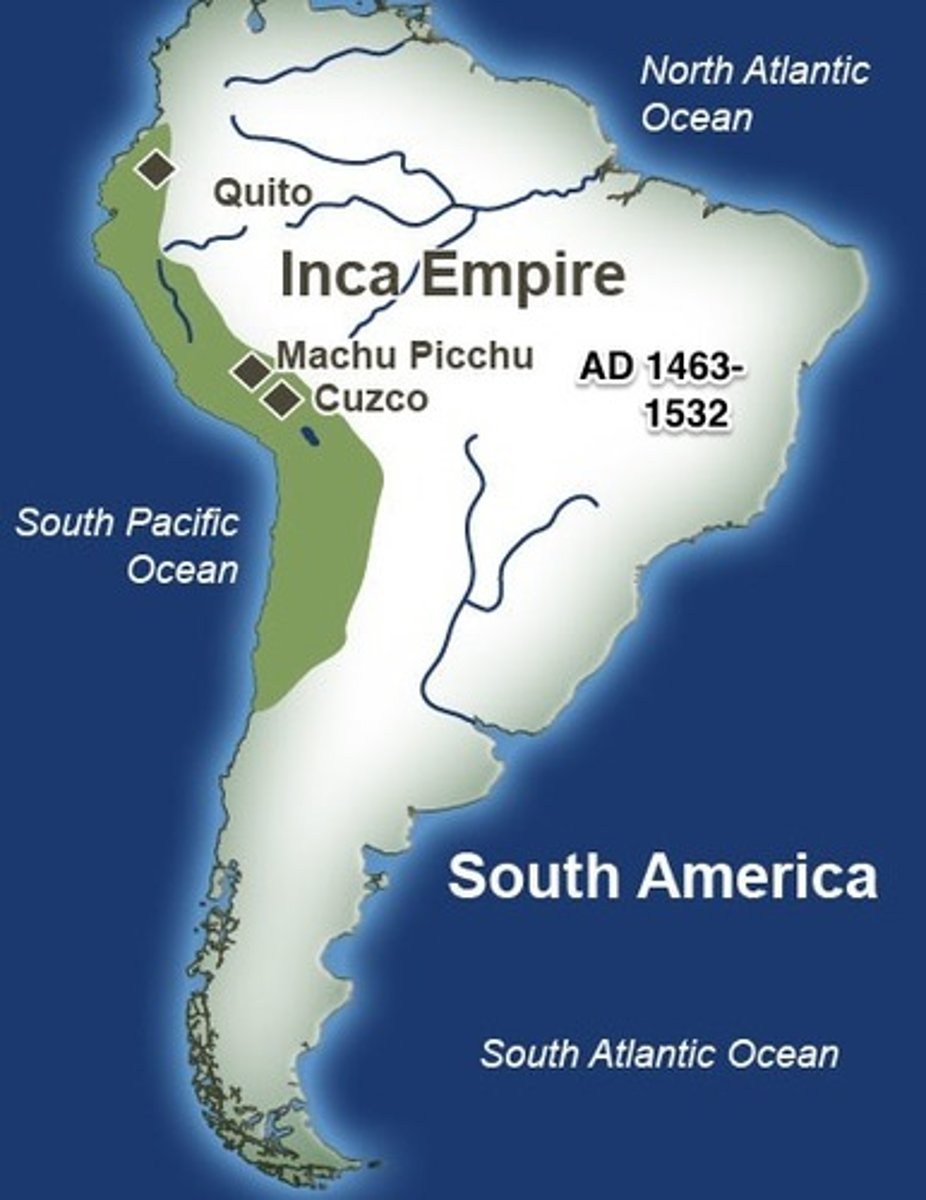
Vodun
syncretic belief system that combines traditional African religious beliefs with elements of Christianity.
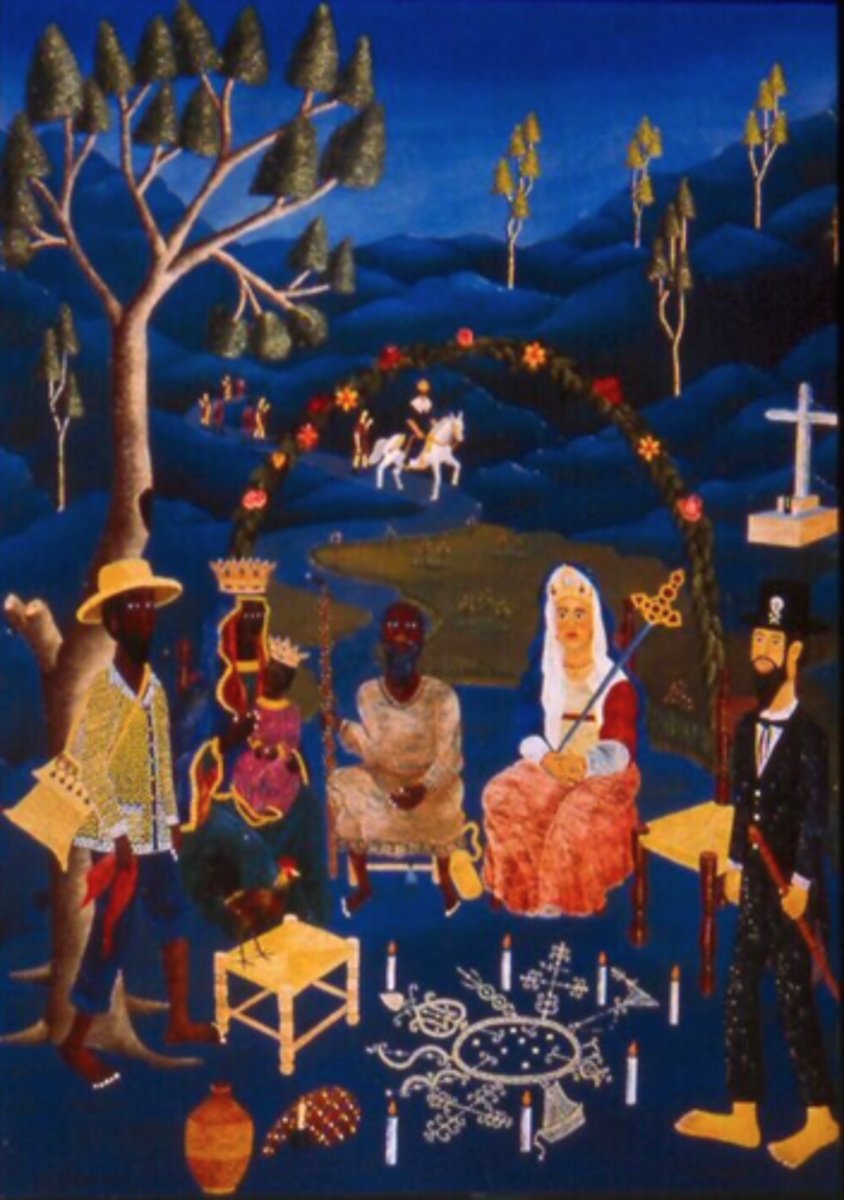
Santeria
Cuban religion that combines Catholic and West African beliefs
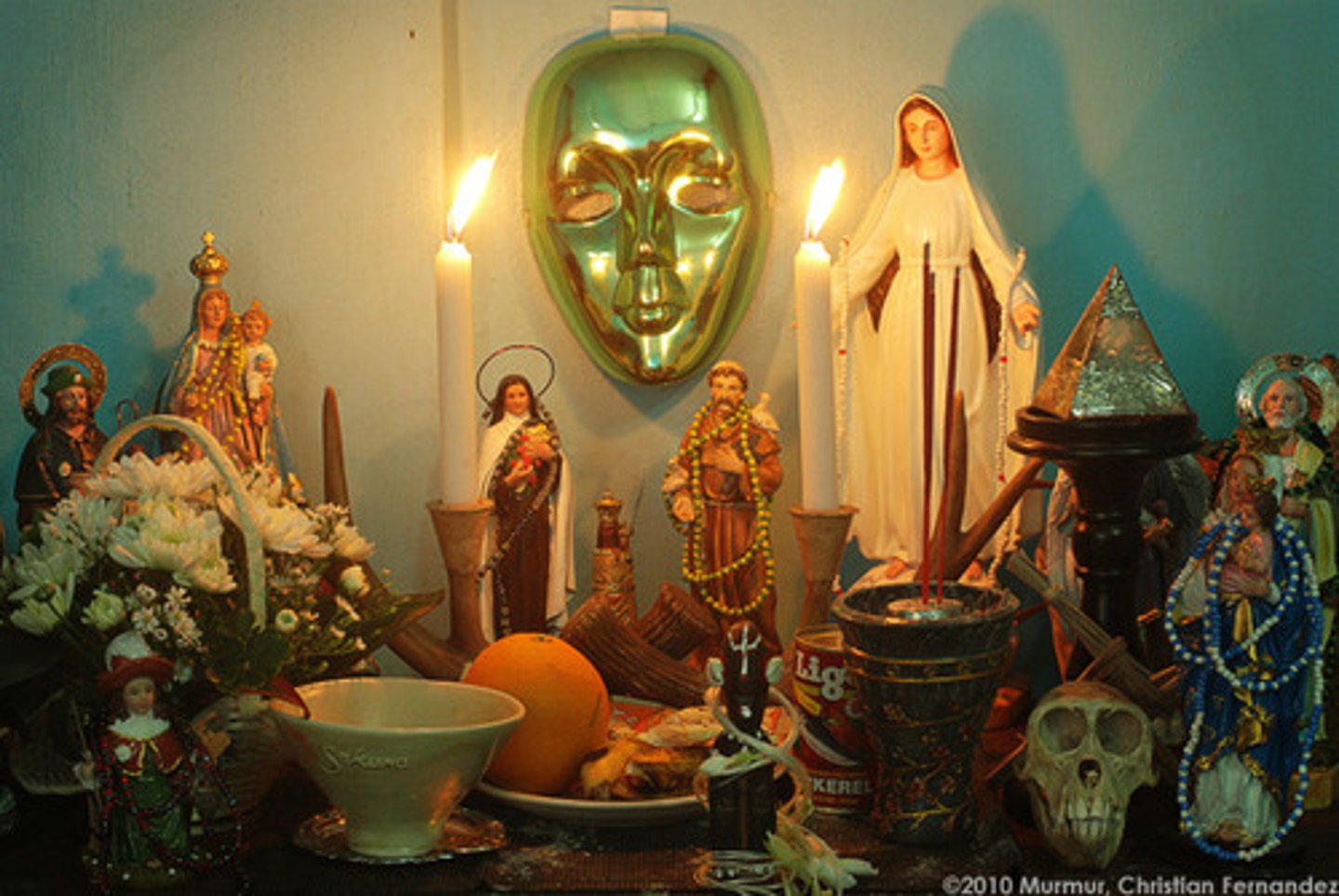
Maroon Societies
Communities formed by escaped slaves in the Caribbean, Latin American. and the United States.
Slave Rebellions
one of the largest uprisngs in the US was the German Coast Rebellion of 1811 in Louisiana; Nat Turner led a revolt in Virginia in 1831
Caravel
A small, highly maneuverable three-masted ship used by the Portuguese and Spanish in the exploration of the Atlantic.
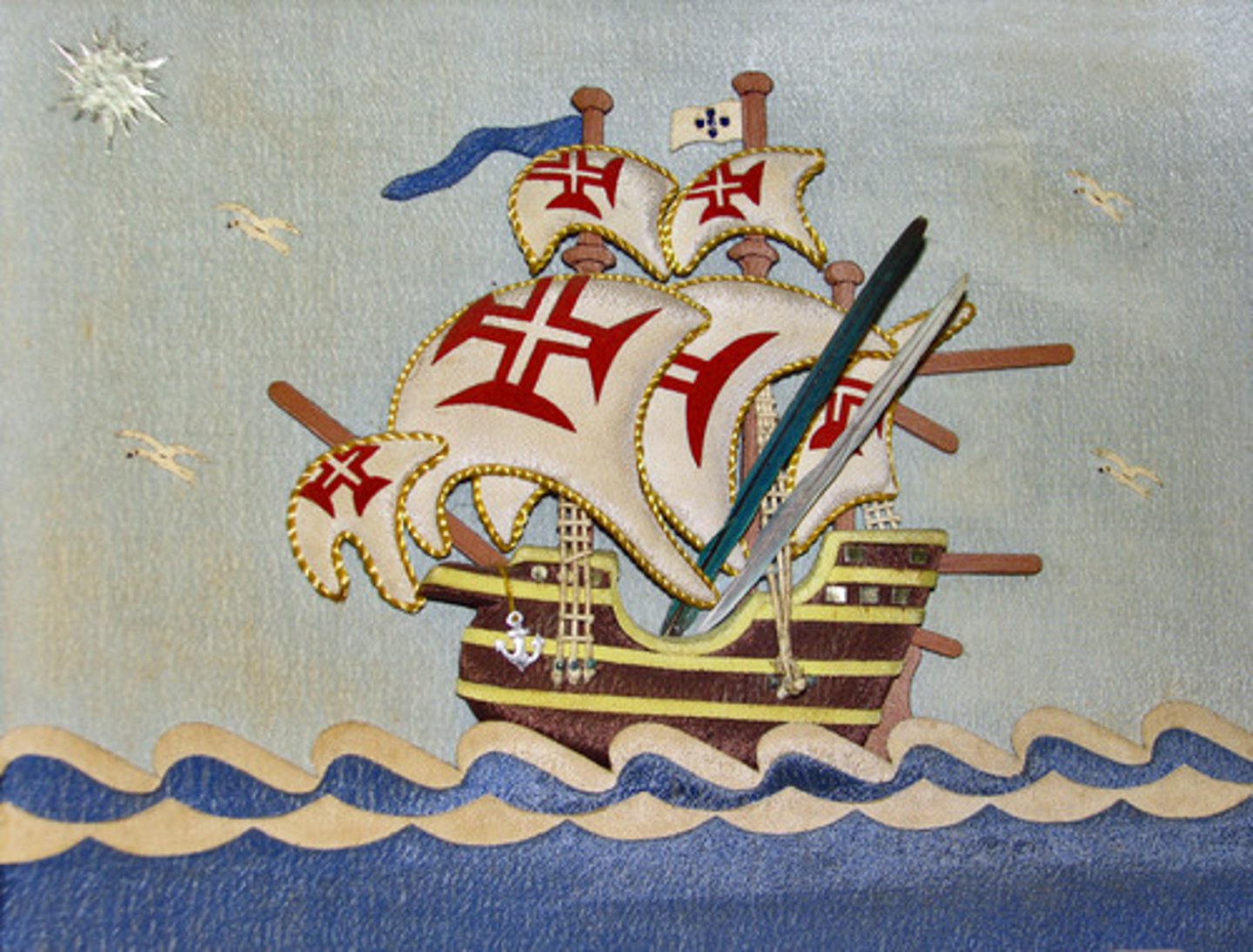
Kongo
Central African state that began trading with the Portuguese around 1500; Kings, such as King Afonso I (r. 1506-1543), converted to Christianity and participated in the slave trade.
Asante Kingdom
kingdom that emerged in the 1700s in present-day Ghana and was active in the slave trade
compass
an instrument containing a magnetized pointer that shows the direction of magnetic north and bearings from it.
Creoles
In colonial Spanish America, term used to describe someone of European descent born in the New World.
Mestizos and Mulattoes
People with mixed races between European and Latin American or African descent
Canton System
restricted foreign trade to the port of Canton, implemented by the later Ming and Qing dynasties.
Dia de los Muertos (Day of the Dead)
This celebration is intended to honor and remember those who have died and represents religious syncretism between Aztec and Catholic traditions. It takes place starting on Oct. 31 through November 2.
Trade Post Empire
Commerce based cities established to gain access to the local trades and control the trade of the region, like the Portuguese in the Indian Ocean
Comanche
lived in South Plains of North America; fierce fighters; learned to ride horses and hunted buffalo; expanded empire against European settlers.
Metacom's War (King Philip's War)
Period of bloody conflict between Wampanoag Indians and Puritan settlers in New England (1675-1676); an example of Indian resistance to English expansion in North America.
Mita System
Incan system for payment of taxes with labor, adopted by Spanish Empire to work in silver mines
Queen Nanny of Jamaica
led a maroon community of formerly enslaved Africans. In the early 18th century, they fought a multi-year war against British colonizers in Jamaica.
Casta system
A system in colonial Spain of determining a person's social importance according to different racial categories.
Inquisition
A Roman Catholic tribunal for investigating and prosecuting charges of heresy, active in Latin America
Jesuits
Also known as the Society of Jesus; a teaching and missionary order to resist the spread of Protestantism and spread Catholicism.
Safe-conduct passes
Portuguese tried to forced Indian Ocean merchant ships to purchase in order to trade safely